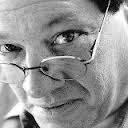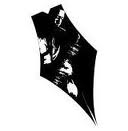Happy New Year, Jazz Journalists Association members and friends — please help us celebrate 2013 as the 25th anniversary of the founding of our professional organization. Supporting the creation and dissemination of high quality coverage of jazz in all its forms, and encouraging the growth of the jazz audience through innovative as well as traditional forms of media, the JJA looks to its past with satisfaction and to its future full of plans, aware of challenges.

As W. Royal Stokes, active from the beginning and for 10 years editor of the JJA’s original newsletter Jazz Notes, has written about the origins of the JJA.
The seeds of the Jazz Journalists Association were sown in a series of meetings that commenced in 1986. They took place in Chicago and New York and were initiated by Willard Jenkins, Paul Baker, Art Lange, and Howard Mandel. Paul would go on to edit the JJA’s newsletter Jazz Notes.
“Our organization was founded at the Arts Midwest Jazz Media conference at the University of Illinois-Chicago in ’88,’ Willard explains. “The intent of the conference was to host a sort of think-tank of jazz media — focusing on our nine-state sector of the Midwest — towards the potential development of some form of collective, or formal organization, of both jazz print and jazz radio media towards the further development and betterment of each profession. Howard Mandel and Art Lange were two of the panelists we engaged for this series of panels and discussions.”
By July ’88 potential members were being solicited, dues were being paid, and the JJA was on its way. No formal election of officers was held until 1992, when Art Lange was elected first president of the Jazz Journalists Association, and served until 1996. When he stepped down, I ran unopposed for his position and was elected. From there to where we are today, the JJA has

continued to function as a think-tank of jazz media, expanding its focus, programs, membership and presence considerably, always towards the development and betterment of the profession.
The JJA’s 300 currently active professional, student and industry-supporting member are based in the North, Central and South America, Europe, Asia and New Zealand, forming the hub of a world-wide network of contacts in the thousands. Tapping these connections, the JJA promotes writing, blogging, broadcasting, photography, videography and film-making about subjects of grassroots significance and international interest. We hold online training webinars and informative panels with veteran as well as emerging media adepts, organize meet-ups of local journalists which welcome musicians, presenters and avid fans to join the discussions, produce events such as the International Jazz Day blogathon and the JJA Jazz Awards — in 2013, 17 years old — and counsel each other as well as unafilliated colleagues throughout music and arts performance, education, booking and recording worlds. The JJA’s expertise is in good new practices to apply when trying to get the words, images and sounds about what’s happening in jazz (broadly defined) out to devotees and the mildly curious, too.
Jazz journalism , according to the JJA, should be as innovative, diverse, real, vivid and far-reaching as the music itself. It ought to be everywhere, since jazz is everywhere — not just focused on a handful of well-established international stars, but also paying attention to the beautiful, creative music going on throughout the world’s communities, starting often in school bands and extending to include local artists so familiar they may be taken for granted. Journalism can include criticism, news of what’s up and coming, reviews, profiles, portraits, biographies, interviews, overviews, investigations, documentaries, business reports — but let’s steer clear of (or clearly label) gossip and speculation. Good journalism isn’t mere opinionating, but is backed up by accurate information, clear comprehension and descriptive analysis. Jazz journalists all believe jazz is a worthy and rewarding topic, but jazz journalists are cats who won’t be herded, and all hold their own convictions about what is good, poor and great jazz.
2013 is not only the JJA’s 25 anniversary, it is also the 100th anniversary (at the end of the year, December 29) of James Reese Europe’s first recordings of his “pre-jazz” Society Band, the orchestra that accompanied Vernon and Irene Castle as they launched a dance craze that brought jazz to the fore. It would be fantastic if 2013 was at the start of a new wave of jazz popularity, which demanded that well-informed and highly sensitive jazz journalists become sought after guides to the course of culture, pundits whose tastes and thoughts persuade the populace to love jazz as we know they do. That might happen! Or not. But regardless of the popularity and commerciality of jazz, jazz journalism is here to stay. The music has survived 100 years, sometimes riding high and sometimes ignored or despised. Jazz journalists have been listening from the get-go, and have the same determination as other members of the jazz world, you bet.




